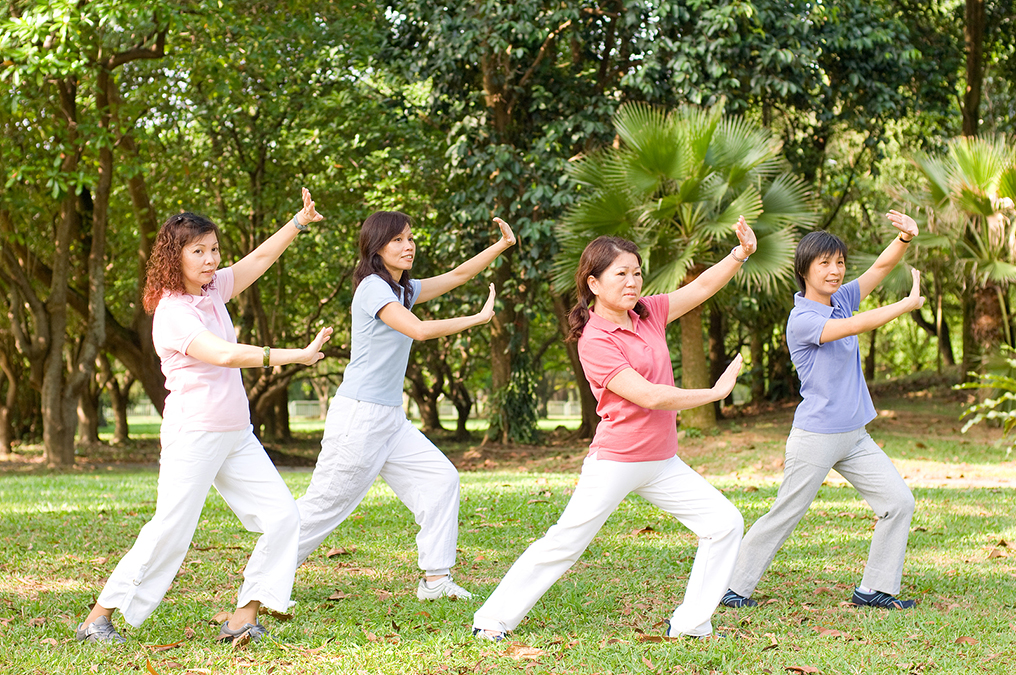 Parkinson’s disease chips away at movement—walking slows, balance falters, and falls loom large.
Parkinson’s disease chips away at movement—walking slows, balance falters, and falls loom large.
But a new study in the European Journal of Medical Research shows that a centuries-old practice can make a real difference.
Researchers analyzed 13 trials with over 1,000 Parkinson’s patients.
The results were clear: Tai Chi improved balance, steadied gait, and lowered the risk of falls.
People walked faster, turned more smoothly, and took longer strides.
Even more, they reported better daily function and quality of life.
Tai Chi trains posture, weight shifting, and slow, controlled movement—all of which directly counter Parkinson’s stiffness and tremors.
It also relaxes muscles and sharpens body awareness, which can ease rigidity.
Some scientists believe it even supports the brain’s ability to adapt, an important factor in degenerative diseases.
Unlike strenuous workouts, Tai Chi is safe for older adults and those with advanced symptoms.
Dropouts were rare, and side effects were virtually nonexistent.
That makes it one of the most accessible ways to stay active with Parkinson’s.
No, it won’t cure the disease. But practiced regularly—at a community class or at home—Tai Chi helps restore independence, mobility, and confidence.
For many, it opens up life again instead of narrowing it.
When it comes to Parkinson’s, exercise isn’t enough.

 Overcoming IBD
Overcoming IBD Multiple Sclerosis
Multiple Sclerosis Banishing Bronchitis
Banishing Bronchitis Gum Disease Gone
Gum Disease Gone Overcoming Onychomycosis
Overcoming Onychomycosis Neuropathy No More
Neuropathy No More The Prostate Protocol
The Prostate Protocol Brain Booster
Brain Booster
 Ironbound
Ironbound
 Solution for Shingles
Solution for Shingles
 The Bone Density Solution
The Bone Density Solution
 The Ultimate Healing Protocol
The Ultimate Healing Protocol
 The Parkinson's Protocol
The Parkinson's Protocol
 The Chronic Kidney Disease Solution
The Chronic Kidney Disease Solution
 Overthrowing Anxiety
Overthrowing Anxiety The Fatty Liver Solution
The Fatty Liver Solution The Hypothyroidism Solution
The Hypothyroidism Solution
 The End of Gout
The End of Gout The Blood Pressure Program
The Blood Pressure Program
 The Oxigized Cholesterol Strategy
The Oxigized Cholesterol Strategy
 Stop Snoring And Sleep Apnea Program
Stop Snoring And Sleep Apnea Program
 The Arthritis Strategy
The Arthritis Strategy The Vertigo & Dizziness Program
The Vertigo & Dizziness Program The 3-Step Diabetes Strategy
The 3-Step Diabetes Strategy Hemorrhoids Healing Protocol
Hemorrhoids Healing Protocol The Erectile Dysfunction Master
The Erectile Dysfunction Master Weight Loss Breeze
Weight Loss Breeze The IBS Program
The IBS Program The Insomnia Program
The Insomnia Program The Migraine and Headache Program
The Migraine and Headache Program The Neck Pain Solution
The Neck Pain Solution The Menopause Solution
The Menopause Solution The Ejaculation Master
The Ejaculation Master The TMJ Solution
The TMJ Solution The Acid Reflux Solution
The Acid Reflux Solution The Fibromyalgia Solution
The Fibromyalgia Solution The Psoriasis Strategy
The Psoriasis Strategy